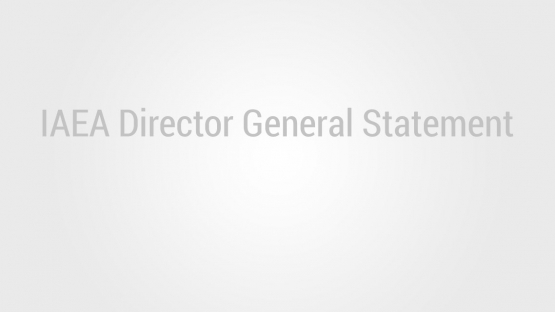I am pleased to welcome you to the 2nd Scientific Forum. The theme this year is Sustainable Development - A Role for Nuclear Power?
Three decades ago, nuclear energy was considered to be the energy of the future. But today, it is at a cross roads and its future is in doubt. And while accurate long term forecasts are difficult to make, the projection is that - other things remaining as they are - its share of global electricity production will fall from 16% today to 10% by the year 2020. In my view, public concern over safety, especially concern about waste management, has proven to be a major constraint not only on the construction of new nuclear power plants but also on the continued operation of some existing plants that are considered both safe and efficient. Moreover, in many countries which are deregulating energy markets, the relatively high initial capital costs of new plants, together with concerns about economic competitiveness and public acceptance, have also been a significant factor in focusing investment elsewhere.
Against this background, the World Energy Council estimates that global demand for electricity will triple in the next 50 years. And concern about global climate change is steadily growing, leading the industrialized countries to agree, under the Kyoto Protocol, to limit their greenhouse gas (GHG) emissions and focus on sustainability. The question that presents itself is: where will all this environmentally clean electricity come from? Because except for nuclear or hydro power, no other source of energy is likely to meet the expected large scale electricity demands, satisfy the GHG emission concerns and remain economically viable. Non-hydro renewable energy sources are important, but they serve a different market from nuclear power - the rural development market, for example - and by the year 2020 are expected to be producing only 2 to 5% of world electricity.
But although environmental concerns clearly provide a window of opportunity for nuclear power, the projected declining percentage of the contribution of nuclear power to electricity generation makes it clear that environmental factors alone will not be enough to trigger a resurgence. In my view, even safety - by itself - is unlikely to guarantee such a resurgence. Nor is 'cheap' and competitive nuclear power going to be enough. As I mentioned to the General Conference yesterday, the nuclear power industry will have to consistently reflect three attributes - safety, competitiveness and public support - in order to be assured of a long term future. Without public confidence, a plant that is both safe and profitable will still face a doubtful future. If competitiveness is emphasized at the expense of safety, this will, in turn, undermine public support. Given the importance of these three attributes for the future of nuclear power, I wish to raise a few questions for your discussion:
First, is the nuclear option getting a fair hearing? What can we do to enhance public understanding of nuclear power? What should be the approach? Is nuclear power's potential contribution to low carbon energy production enough to change public attitudes as global warming effects become more apparent, or are the economics of the different energy sources more important? How can we allay the concerns of the public with regard to the effect of radiation and the possible misuse of the civil nuclear fuel cycle for military purposes, or the grave fears about a major accident?
Second, what can the nuclear industry do to be more competitive; is there a role for international co-operation in this regard? What is the impact of increasing privatization? What role can innovative technology and new fuel cycles play? How could we ensure that the full cost of different energy options, including their environmental impact, are factored into comparative economic assessments?
And third, where should the focus be in terms of safety and waste management? In the general field of safety should it be on regulatory practices and human resources development, or more on technological developments and in the specific field of waste? Should it be on developing agreed safety standards, or on actual construction of repositories, or on new methods for waste management, or on all of these? What are the weak points in the safety field? Again, what role is there for international co-operation?
These are some of the questions that come to mind. And it is my hope that your discussions will advance our collective ability to answer these questions. The provision of affordable energy in a safe, secure and environmentally friendly manner is a prerequisite for sustainable development. I hope this year's Forum will allow Member States to better evaluate the role of nuclear power as a possible energy source in their pursuit of sustainable development goals.
I look forward to the Forum's report, which will contain a summary of your views as well as your recommendations. It will be conveyed to the plenary of the General Conference.


